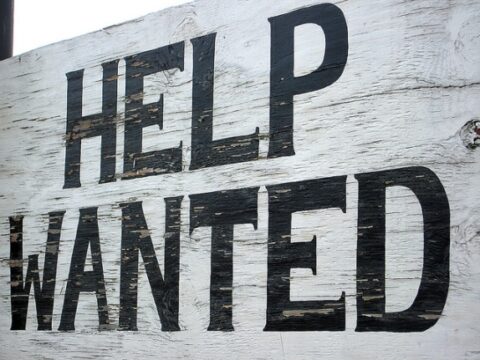Economics

New Report Finds that Immigration Creates U.S. Jobs
Immigration creates jobs for native-born Americans. That is the fundamental finding of a new study from the American Enterprise Institute and the Partnership For A New American Economy, entitled Immigration and American Jobs. The study—authored by Madeline Zavodny, a professor of economics at Agnes Scott College—reinforces the findings of numerous other studies which have demonstrated that there is no correlation between immigration and unemployment. Specifically, Zavodny analyzes Census data with the aim of answering one pivotal question: “In states with more immigrants, are US natives more or less likely to have a job?” Zavodny focuses on two groups in particular: immigrants with advanced degrees, and immigrants of any skill level who are in the country on temporary visas. Read More

New Report Shows Immigrant Women Entrepreneurs Create Jobs and Contribute to Economy
Economists readily acknowledge the economic contributions of immigrant entrepreneurs to the U.S. After all, we wouldn’t have one-quarter of all public companies in the U.S.—companies like Google, Yahoo!, and Intel which employed 220,000 people and generated more than $500 billion in one year—without them. But lost in that acknowledgement are the contributions of immigrant women entrepreneurs who last year made up 40% (or 980,575) of all immigrant business owners in the U.S. This week, a new report, Our American Immigrant Entrepreneurs: The Women, takes a closer look at these women and examines the obstacles and pathways to establishing successful businesses—businesses that have created American jobs and generated millions in taxable revenue. Read More

New Report Predicts Continuing Integration of Immigrants into U.S. Society
Anti-immigrant activists like to pretend that immigrants are destined to be poor and to never successfully integrate into U.S. society. However, a new report from the Center for American Progress (CAP) concludes that, in reality, “immigrants are integrating into American life, learning English, and becoming homeowners.” When socioeconomic advancement is tracked over time, it becomes clear that “far from a life in poverty, immigrants are exemplifying the American Dream.” The report, entitled Assimilation Tomorrow, was co-authored by renowned demographer Dowell Myers (a professor in the School of Policy, Planning, and Development at the University of Southern California) and by John Pitkin (president of Analysis and Forecasting, Inc., in Cambridge, Massachusetts). This report is the companion piece to another study which was released by CAP last year, entitled Assimilation Today. Read More

Even Facebook Feels Brunt of Broken U.S. Immigration Policy
You know things are bad when a company as popular as Facebook has problems finding qualified talent. In a recent interview, Facebook’s chief operating officer, Sheryl Sandberg, remarked that our outdated immigration policy is a big reason Silicon Valley tech companies are fighting each other for highly skilled workers. Current immigration policy limits high-skilled worker visas (H-1B) to only 65,000 per year—a number that hardly meets demand. Even technology giant Microsoft recently testified before Congress that current immigration policies make finding talent a serious challenge. Until lawmakers revamp our outdated immigration system, technology companies like Facebook and Microsoft will continue to lose out on the foreign talent they need to stay ahead of the curve. Read More

A Small Step Toward Reform: Bipartisan Bill Seeks to Raise Per Country Immigration Caps
An immigration bill introduced by Congressmen Lamar Smith and Jason Chaffetz and supported by Democrats may actually have a chance at passing in Congress. Scheduled for a mark up this week, the bill (H.R. 3012) would make small but significant changes to the way green cards are distributed by eliminating per country numerical limits on employment-based green cards and raising the limits on family-based green cards which go to immigrants from each country. Read More

Some Alabama Businesses Having Trouble Replacing Immigrant Workers
Just two weeks after Alabama’s extreme immigration law (HB 56) went into effect, many are reporting an exodus of immigrants, Latinos and their families from the state. While HB 56 supporters cheer the exodus as a victory, many Alabama businesses say they are left without an adequate workforce. Despite assurances from Governor Bentley that U.S. citizens will gladly take those jobs, Alabama farmers, meat processors and housing contractors are finding that U.S. citizen or legal workers are either not willing or able to take those jobs—leaving fruit to rot on the vine and home reconstructions projects unfinished. Not only will this hurt Alabama business in the short term, economists say, but will shrink the state’s economy and productivity over time. Read More

Dayton, Ohio Passes Plan to Revitalize Economy through Immigrant Integration
Shortly after Alabama began implementing their anti-immigration law (HB 56), Dayton, Ohio passed legislation that welcomes and integrates immigrants with the hope that they will revitalize their slowing economy. Faced with a declining population, Dayton’s City Commission voted unanimously last week to adopt the Welcome Dayton Plan—a plan that is tapping into the very economic stimulus that Alabama is driving out. Read More

Declining Cities Look to Immigrants to Revitalize Economies and Increase University Enrollment
In a recent speech to the U.S. Chamber of Commerce, New York City Mayor Michael Bloomberg highlighted the vital role immigrants play in stimulating economic growth. Bloomberg called for immigration policies that “spur innovation, increase the number of entrepreneurs who start businesses here, and create jobs for Americans on every rung of the economic ladder." With U.S. unemployment still hovering around 9%, some declining U.S. cities are also looking to harness the economic and entrepreneurial power of immigrants. Small towns, particularly in America’s rust belt, are contemplating programs that attract immigrant growth in hopes of revitalizing their towns and universities. Read More

Better Immigrant Integration Leads to Economic Growth
Over the weekend, more than 27,000 people became American citizens during 285 naturalization ceremonies held across the country in honor of Citizenship Day (September 17). Becoming a citizen, however, is hard work. A new country, new rules, high costs, and little targeted support for new immigrants make what should be a journey of exploration and opportunity one that may be frustrating and lonely. Not surprisingly, problems such as these are a major obstacle to naturalization. Scholars note that despite the steady rise in naturalization rates over the decades, a shocking number of people do not naturalize are actually eligible to do so. In 2008, for example, while more than one million LPRs naturalized, more than eight million were eligible to do so. Developing better integration programs, however, may improve naturalization efforts and lead to economic growth. Read More

Lamar Smith’s E-Verify Arguments Defy Logic and Lack Evidence
Facing opposition from the left and the right, Rep. Lamar Smith appears to be willing to do and say just about anything to pass his “Legal Workforce Act,” (H.R. 2885), which would make E-Verify mandatory for all U.S. businesses. Smith continues to tout E-Verify as a magic bullet that will create jobs for millions of American workers despite all evidence to the contrary. Read More
Make a contribution
Make a direct impact on the lives of immigrants.
